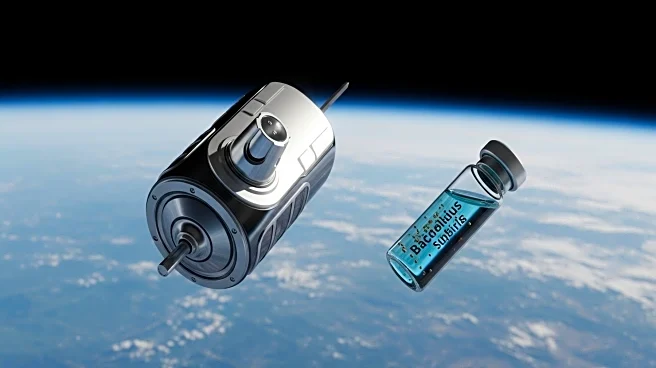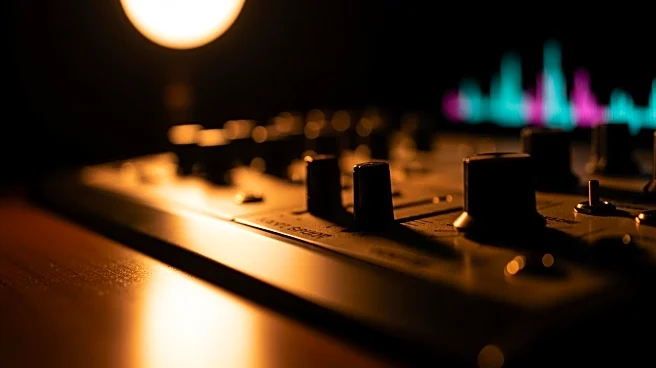What's Happening?
ResearchSat has successfully conducted a series of experiments on Bacillus subtilis aboard a suborbital flight as part of the Suborbital Express 3 - M15 mission. The mission, hosted by the Swedish Space Corporation, utilized a two-stage sounding rocket to study the effects of extreme acceleration, microgravity, and deceleration on microbial life. The ADI-α payload, developed by ResearchSat, included two experimental chambers for microbial and yeast cell culture experiments. The payload was integrated onto the rocket and launched from the Esrange Space Centre in Northern Sweden. The experiments aimed to understand the viability and structural changes in B. subtilis spores under spaceflight conditions.
Why It's Important?
This research is significant as it contributes to the understanding of how microbial life responds to space conditions, which is crucial for long-term space missions and potential colonization efforts. The findings could have implications for biotechnology and pharmaceutical industries, particularly in developing new methods for drug delivery and preservation. The study also enhances knowledge about microbial survival in extreme environments, which could inform astrobiology research and the search for life on other planets.
What's Next?
Following the successful retrieval of the payload, further analysis of the B. subtilis spores will be conducted to assess viability and structural changes. The results will be compared with ground control samples to determine the specific effects of spaceflight. Future missions may expand on these findings by testing other microbial species or conducting longer-duration experiments to simulate extended space travel conditions.
Beyond the Headlines
The ethical considerations of sending living organisms into space are an ongoing discussion, particularly regarding the potential contamination of extraterrestrial environments. This research also highlights the growing collaboration between private companies and space agencies in advancing scientific knowledge through space exploration.










